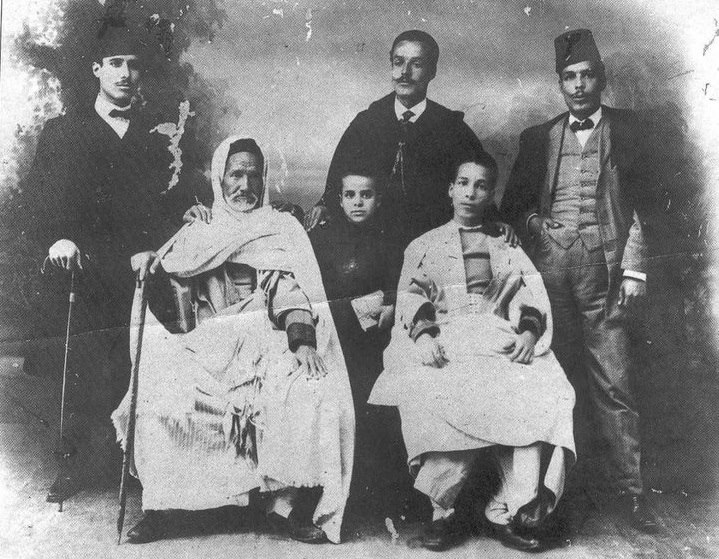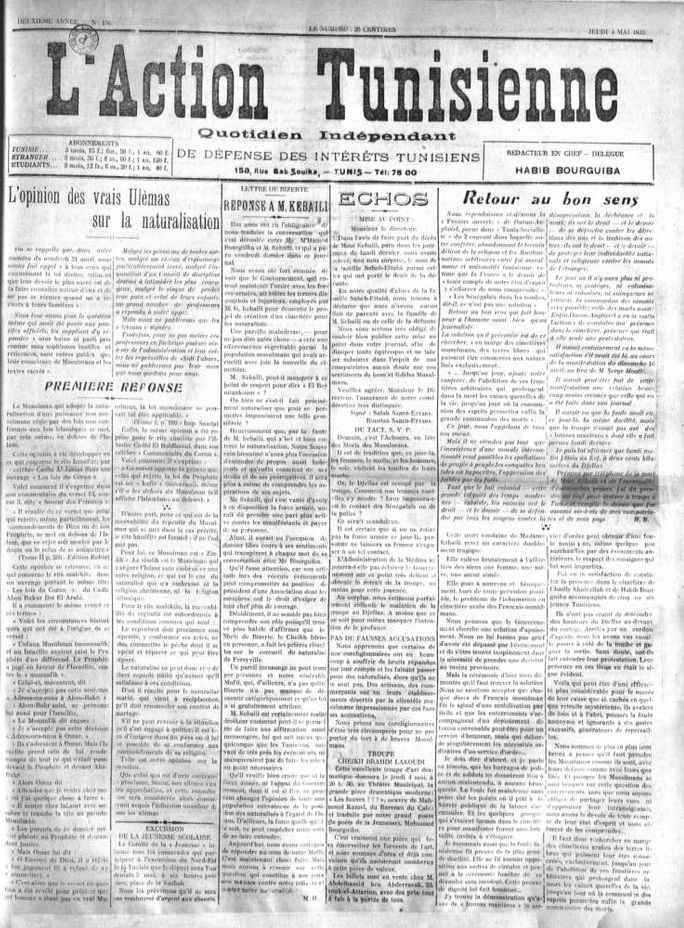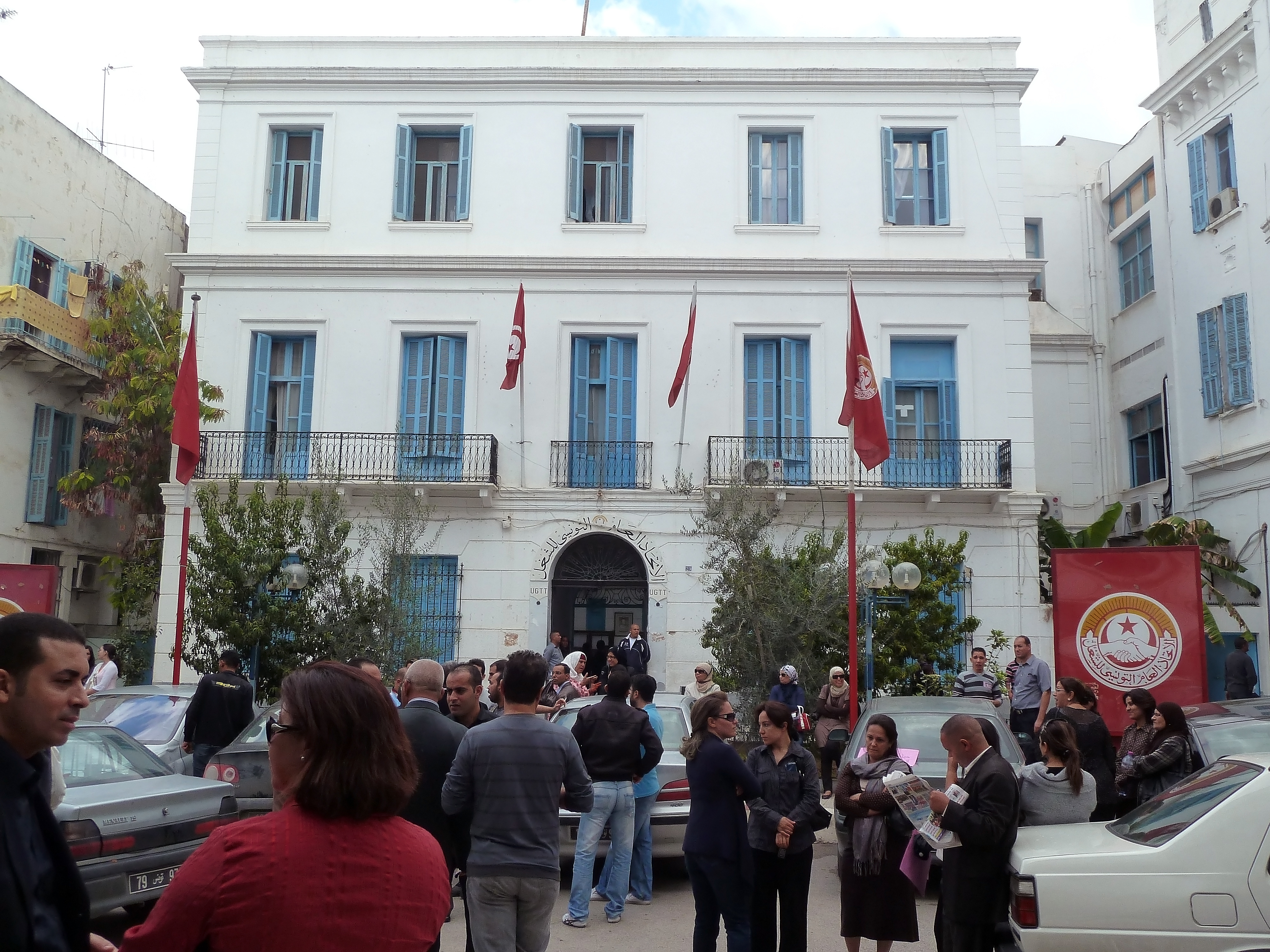|
Neo-Destour
The New Constitutional Liberal Party ( ar, الحزب الحر الدستوري الجديد, '; French: ''Nouveau Parti libéral constitutionnel''), most commonly known as Neo Destour, was a Tunisian political party founded in 1934 by a group of Tunisian nationalist politicians during the French protectorate. It originated from a split with the Destour party. Led by Habib Bourguiba, Neo Destour became the ruling party upon Tunisian independence in 1956. In 1964, it was renamed the Socialist Destourian Party. History The party was formed as a result of a split from the pre-existing Destour party in 1934, during the Ksar Hellal Congress of March 2. Several leaders were particularly prominent during the party's early years before World War II: Habib Bourguiba, Mahmoud El Materi, Tahar Sfar, Bahri Guiga, and Salah ben Youssef. Prior to the split, a younger group of Destour members had alarmed the party elders by appealing directly to the populace through their more radica ... [...More Info...] [...Related Items...] OR: [Wikipedia] [Google] [Baidu] |
Habib Bourguiba
Habib Bourguiba (; ar, الحبيب بورقيبة, al-Ḥabīb Būrqībah; 3 August 19036 April 2000) was a Tunisian lawyer, nationalist leader and statesman who led the country from 1956 to 1957 as the prime minister of the Kingdom of Tunisia (1956–57) then as the first president of Tunisia (1957–87). Prior to his presidency, he led the nation to independence from France, ending the 75-year-old protectorate and earning the title of "Supreme Combatant". Born in Monastir to a poor family, he attended Sadiki College then Lycée Carnot in Tunis, before obtaining his baccalaureate in 1924. He graduated from the University of Paris and the Paris Institute of Political Studies (Sciences Po) in 1927 and returned to Tunis to practice law. In the early 1930s, he became involved in anti-colonial and Tunisian national politics, joining the Destour party and co-founding the Neo Destour in 1934. He rose as a key figure of the independence movement and was repeatedly ar ... [...More Info...] [...Related Items...] OR: [Wikipedia] [Google] [Baidu] |
History Of Tunisia Under French Rule
The history of Tunisia under French rule started in 1881 with the establishment of the French protectorate and ended in 1956 with Tunisian independence. The French presence in Tunisia came five decades after their occupation of neighboring Algeria. Both of these lands had been associated with the Ottoman Empire for three centuries, yet each had long since attained political autonomy. Before the French arrived, the Bey of Tunisia had begun a process of modern reforms, but financial difficulties mounted, resulting in debt. A commission of European creditors then took over the finances. After the French conquest of Tunisia the French government assumed Tunisia's international obligations. Major developments and improvements were undertaken by the French in several areas, including transport and infrastructure, industry, the financial system, public health, administration, and education. Although these developments were welcome, nonetheless French businesses and citizens were clearly ... [...More Info...] [...Related Items...] OR: [Wikipedia] [Google] [Baidu] |
Destour
The Constitutional Liberal Party ( ar, الحزب الحر الدستوري, '), most commonly known as Destour, was a Tunisian political party, founded in 1920, which had as its goal to liberate Tunisia from French colonial control. History The term ''Destour'' is usually translated as ''constitutional'', and referred to the Tunisian constitution of 1863—the first in the Arab world. It is probably of Persian origin through the presence of Turkish in Northern Africa during the 17th to the 19th century. There is no trace of this word in the Arabic spoken during the pre-Islamic period, nor in the Quran or hadiths, nor in the Arabic language literature during the period preceding the Ottoman Empire, during which this word began to be used in Egypt. The party wanted to remove all French influence from Tunisia and return to an earlier time. The students, faculty, and alumni of the University of Ez-Zitouna became an integral part of the 1920s Destour party. As time passed, grad ... [...More Info...] [...Related Items...] OR: [Wikipedia] [Google] [Baidu] |
Salah Ben Youssef
Salah Ben Youssef ( ar, صالح بن يوسف, Ṣalāḥ ibn Yūsuf; October 11, 1907 – August 12, 1961) was a Tunisian politician and one of the key leaders of the Tunisian national movement. Early life Born in Maghraoua, a small village near Midoun on Djerba, to a family of wealthy and influential merchants. He trained to be a lawyer, but became involved in politics where he was prized for his personal qualities. This would later lead to his ascension to being Habib Bourguiba's protégé. He began his political career as the Secretary General of the Neo-Destour Political Party, a post where he played a role of key organizer during Bourguiba's exile. In August 1950, he was appointed as the Tunisian Minister of Justice in the government of Mohamed Chenik. Charged with bringing the Tunisian request for statehood to the United Nations, which was gathered in Paris in March 1952, he barely escaped arrest and deportation. While travelling across the world for more than three y ... [...More Info...] [...Related Items...] OR: [Wikipedia] [Google] [Baidu] |
Tunisian Nationalist
Tunisian nationalism refers to the nationalism of Tunisians and Tunisian culture. Tunisian nationalism's origins stretch back to the 19th century; however, Tunisian nationalism became a significant political force after 1908 with the founding of the Young Tunisians movement, and the more significant Destour (Arabic for "Constitution) Party established after World War I. The Destour Party called for Tunisian autonomy within the French Empire and that France should not dominate Tunisia's politics and society. France responded by banning the Destour Party in 1933, resulting in the rise of a more radical nationalist party, the Neo-Destour Party being formed in 1934 led by Habib Bourguiba. The Neo-Destour Party demanded independence of Tunisia from France, though it respected French and Western culture and sought to maintain close links with France after independence was achieved. See also * Algerian nationalism * Arab nationalism * Egyptian nationalism Egyptian nationalism is based ... [...More Info...] [...Related Items...] OR: [Wikipedia] [Google] [Baidu] |
Tunisian Nationalism
Tunisian nationalism refers to the nationalism of Tunisians and Tunisian culture. Tunisian nationalism's origins stretch back to the 19th century; however, Tunisian nationalism became a significant political force after 1908 with the founding of the Young Tunisians movement, and the more significant Destour (Arabic for "Constitution) Party established after World War I. The Destour Party called for Tunisian autonomy within the French Empire and that France should not dominate Tunisia's politics and society. France responded by banning the Destour Party in 1933, resulting in the rise of a more radical nationalist party, the Neo-Destour Party being formed in 1934 led by Habib Bourguiba. The Neo-Destour Party demanded independence of Tunisia from France, though it respected French and Western culture and sought to maintain close links with France after independence was achieved. See also * Algerian nationalism * Arab nationalism * Egyptian nationalism Egyptian nationalism is based ... [...More Info...] [...Related Items...] OR: [Wikipedia] [Google] [Baidu] |
History Of Modern Tunisia
In its modern history, Tunisia is a sovereign republic, officially called the Republic of Tunisia. Tunisia has over ten million citizens, almost all of Arab-Berber descent. The Mediterranean Sea is to the north and east, Libya to the southeast, and Algeria to the west. Tunis is the capital and the largest city (over 800,000); it is located near the ancient site of the city of Carthage. Its first modern leader, President Habib Bourguiba brought to the office hard-won political experience, after many decades of service in the leadership of the independence movement. As the major figure of the Neo-Destour Party, he was instrumental in obtaining full independence for Tunisia in 1956. He dominated the government until his removal in 1987. During his years in office, his accomplishments included: a law reform, economic policies which detoured briefly in a socialist direction, a moderate but steady improvement in standard of living, and a foreign policy which retained an independent ap ... [...More Info...] [...Related Items...] OR: [Wikipedia] [Google] [Baidu] |
Ksar Hellal Congress
The Ksar Hellal Congress was the first and founding congress of the Neo Destour party. The 1934 Neo Destour Congress was organized by the secessionist members of the Destour party, in Ksar Hellal, on March 2, 1934. It ended, that very night, with the creation of a new political party. Upon the weakening of the Destour, that adopted a "shy" policy towards the Residence, the colonial French administration in Tunisia, a new generation of provincial thirties, with a European education and a close relationship with the French socialists, emerged. Mainly compounded of Habib Bourguiba, Mahmoud El Materi, Bahri Guiga, Tahar Sfar and M'hamed Bourguiba, it acquired a huge popularity thanks to its bold articles in newspapers, such as ''L'Action Tunisienne''. However, the differences they had with the elders of the party led them to resign from the executive committee, the party's leadership, following the Tunisian naturalization issue. The congress was held on March 2, 1934 to discus ... [...More Info...] [...Related Items...] OR: [Wikipedia] [Google] [Baidu] |
L'Action Tunisienne
''L'Action Tunisienne'' (sometimes abbreviated to L'Action) is a former Tunisian Francophone newspaper founded by Habib Bourguiba and published from November 1, 1932 to March 19, 1988. Working for the Destour party, at first, it later became part of the Neo-Destour then the Socialist Destourian Party, since its foundation on March 2, 1934, in Ksar Hellal. It gathered nationalist activist like Béchir M'hedhbi, co-founder of the journal and its first editor in chief, Mahmoud El Materi, Bahri Guiga, M'hamed Bourguiba, Ali Bouhajeb and Tahar Sfar. Becoming a daily newspaper, it pursued its publishing after Tunisia's independence in 1956. Its last edition was published on March 19, 1988. It was replaced the following morning by '' Le Renouveau'' newspaper., History Origins and foundation In the early 1930s, Habib and M'hamed Bourguiba, El Materi, Guiga and Sfar, started writing articles in ''La Voix du Tunisien'', a newspaper owned by Chedly Khairallah, a member of the ... [...More Info...] [...Related Items...] OR: [Wikipedia] [Google] [Baidu] |
Marseille
Marseille ( , , ; also spelled in English as Marseilles; oc, Marselha ) is the prefecture of the French department of Bouches-du-Rhône and capital of the Provence-Alpes-Côte d'Azur region. Situated in the camargue region of southern France, it is located on the coast of the Gulf of Lion, part of the Mediterranean Sea, near the mouth of the Rhône river. Its inhabitants are called ''Marseillais''. Marseille is the second most populous city in France, with 870,731 inhabitants in 2019 (Jan. census) over a municipal territory of . Together with its suburbs and exurbs, the Marseille metropolitan area, which extends over , had a population of 1,873,270 at the Jan. 2019 census, the third most populated in France after those of Paris and Lyon. The cities of Marseille, Aix-en-Provence, and 90 suburban municipalities have formed since 2016 the Aix-Marseille-Provence Metropolis, an indirectly elected metropolitan authority now in charge of wider metropolitan issues, with a po ... [...More Info...] [...Related Items...] OR: [Wikipedia] [Google] [Baidu] |
Autonomy
In developmental psychology and moral, political, and bioethical philosophy, autonomy, from , ''autonomos'', from αὐτο- ''auto-'' "self" and νόμος ''nomos'', "law", hence when combined understood to mean "one who gives oneself one's own law" is the capacity to make an informed, uncoerced decision. Autonomous organizations or institutions are independent or self-governing. Autonomy can also be defined from a human resources perspective, where it denotes a (relatively high) level of discretion granted to an employee in his or her work. In such cases, autonomy is known to generally increase job satisfaction. Self-actualized individuals are thought to operate autonomously of external expectations. In a medical context, respect for a patient's personal autonomy is considered one of many fundamental ethical principles in medicine. Sociology In the sociology of knowledge, a controversy over the boundaries of autonomy inhibited analysis of any concept beyond relative ... [...More Info...] [...Related Items...] OR: [Wikipedia] [Google] [Baidu] |
UGTT
The Tunisian General Labour Union (french: Union Générale Tunisienne du Travail, ''UGTT''. ar, الاتحاد العام التونسي للشغل) is a national trade union center in Tunisia. It has a membership of more than one million and was founded January 20, 1946. The UGTT is affiliated with the International Trade Union Confederation and the Arab Trade Union Confederation. The UGTT worked together with the Tunisian Human Rights League, the Tunisian Confederation of Industry, Trade and Handicrafts and the Tunisian Order of Lawyers – collectively labelled the National Dialogue Quartet – to address the national discord following the Jasmine Revolution of 2011. The National Dialogue Quartet was announced as the laureate of the 2015 Nobel Peace Prize "for its decisive contribution to the building of a pluralistic democracy in Tunisia". Chairman (secretaries-general) *1946–1952: Farhat Hached *1952–1952: Mahmoud Messadi *1952–1954: Mohamed Kraïem *19 ... [...More Info...] [...Related Items...] OR: [Wikipedia] [Google] [Baidu] |




